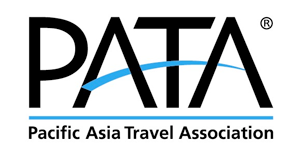Due to the reopening of borders, high-quality medical care, and affordable costs, medical tourists are returning to Malaysia in droves and are anticipated to surpass the pre-COVID-19 pandemic level in 2019.
These travelers primarily come from Australia, Bangladesh, China, India, Indonesia, and Japan.
According to information from the Malaysia Healthcare Travel Council (MHTC), the number of healthcare travelers increased over time, peaking at 1.22 million people in 2019.
With only 689,000 healthcare travelers reported in 2020, there was a noticeable reduction. The number further decreased to 561,000 in 2021 as the downward trend persisted.
Last year, the number increased to 850,000, bringing in RM1.3 billion for the nation.
General health screening, cardiology, fertility, oncology, and orthopedics, including medical and surgical procedures as well as cancer therapies, are some of the most popular treatments in the county.
Acting CEO Farizal Jaafar stated that "the industry is projected to make a full recovery, potentially setting a record high for industry achievement," adding that Malaysia's healthcare travel industry had sales of over RM900 million in the first half of this year.
"The healthcare travel industry is well on its way to achieving post-pandemic recovery, having reached 76% of its pre-pandemic performance of RM1.7bil in 2019," the expert continued.
One of the factors drawing tourists to the nation's shores, according to Datuk Dr. Kuljit Singh, head of the Association of Private Hospitals Malaysia, is the availability of high-quality healthcare at a reasonable price as compared to other nations in the region.
"English is the primary language used during therapy by our doctors, who have received excellent training both domestically and abroad. In addition, other expenses like lodging and meals are reasonably priced and well-served. While they are here, they also take advantage of other tourist attractions, he told The Star.
Nadiah Wan, group chief executive officer of TMC Life Sciences Bhd, claimed that the post- pandemic demand for healthcare services has increased as a result of the business's notable revenue growth between 2021 and 2022.
"Since the reopening of our borders, we have seen a positive uptake in international patients, particularly in the Southeast Asia region," she said, adding that the organization has also experienced growth through its most recent expansion into Vietnam.
Nadiah, who is also the CEO of Thomson Hospital Kota Damansara, mentioned that the healthcare sector has many difficulties, including a labor shortage and competition from nearby nations.
Lawyer Vincent Kwok, 50, of Hong Kong, stated that he traveled to Malaysia for health examinations since the country's facilities provide timely and reasonably priced medical care.
waiting period and specialist appointments must be scheduled," he noted in an interview.
Kwok praised the friendliness he experiences in the nation, comparing the price of a medical check-up in Hong Kong to the costs of a four-day, three-night vacation to Malaysia.
"My experience in Malaysia is that medical reports are available very quickly, costs are reasonable, and service is excellent," he continued.
Kwok claimed that he normally favored the health screening options offered by hospitals in Kuala Lumpur, namely the Prince Court Medical Centre.
"These packages typically cost RM2,000 when all costs, including travel insurance, are taken into account.
Businessman Paulus, 45, of Indonesia's Bengkalis claimed to have taken a ferry to Melaka with his father for treatment and follow-up at a luxury hospital.
"In 2019, my dad underwent heart surgery at the hospital, and the following year, he was due to come in for a checkup.
The pandemic put a stop to that, though, and he continued, "We only traveled to Melaka last year when Malaysia's borders reopened."
Paulus claimed that his 75-year-old father liked the medical care in Melaka.
- TAGS / KEYWORDS:




.png)



















.jpg)




.png)











